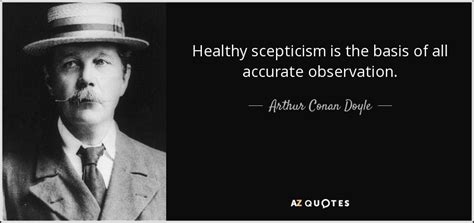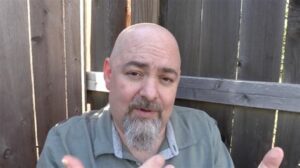
Introduction
Scepticism has been a developed philosophy in the West since the times of Ancient Greece. It questioned the dogmatic philosophies of the then philosophers, theologians, and scientists. It has continued to play an important role in questioning the dogmatic claims of all truth claims. Scepticism appeared notably in the philosophy of Socrates in the early dialogues of his pupil, Plato. Plato was the major representative and written source of Socrates philosophy as Socrates, an enigmatic individual, wrote nothing of his views. Socrates always questioned all knowledge claims. He was purported to say that nothing should be believed as a truth.
Another Greek philosopher, Pyrrhon of Elis who was probably the first philosopher to assert scepticism as a way of living. He questioned any claims of knowledge about the world and believed that he only knowledge we had was given to us by appearances. He avoided all claims about the world not available through appearances. For him, this was the answer to happiness and peace.
In this blog, I talk of scepticism and its relation to living. I will emphasise that scepticism is not just a method for judging the validity of claims and assertions, it is also a way of life. It is a practice that provides a truthful understanding of the world and also of ourselves.
A small point of clarification. The terms Skeptic and Sceptic are, despite some claims to the contrary, interchangeable, they refer to the American and UK English versions respectively.
Modern Scepticism
Scepticism has evolved since the Greeks, though it has always adhered to a view of questioning truth claims. The emergence of modern science constituted, I would argue, a new form of scepticism. The methods of science followed the sceptical approach of questioning truth claims. Scientific method required all assertions of truth to be supported by independent evidence. Such evidence was to be from objective sources, accurate observation and the use of reliable technological instruments, those who could show incontrovertible objective information. These could be telescopes, microscopes, cameras, and many recording devices. I will refer to the scientific method further below.
I think it is important to note at the outset that the scepticism I follow adopts the position that any assertion or claim to knowledge should be supported by evidence distinct (a distinct source) from the actual assertion or claim. For example, that one cannot say that something is the case because someone, even someone with some sort of authority, says it is. Religious claims mostly take this approach, as their claims are not supported by acceptable evidence
The view, for example, taken by Christians, is that supernatural events, (i.e. miracles basically) in biblical accounts are true because the bible says they are. Their justification is that the bible is the word of god and all of its content is literally true. How do they know this? By faith is their answer. This is not acceptable to the sceptical approach I am arguing for. You cannot use quotes from a source of the information, such as the bible, as evidence to justify what the sources (e.g. the bible) assert.
 Some philosophers were anti sceptics. The Danish Existential Philosopher Søren Kierkegaard, who in many respects I admire, supported the idea of faith as a means to the truth. He opposed the view that faith cannot count as evidence. He maintained that faith is necessary for establishing truth, as other forms of (objective) investigation only show a meaningless world. Only faith can provide us with meaning in a meaningless world. Through faith, we struggle with what the world brings and find subjective meaning for ourselves this way. Though, strangely, he said, this is a subjective truth, not an objective one.
Some philosophers were anti sceptics. The Danish Existential Philosopher Søren Kierkegaard, who in many respects I admire, supported the idea of faith as a means to the truth. He opposed the view that faith cannot count as evidence. He maintained that faith is necessary for establishing truth, as other forms of (objective) investigation only show a meaningless world. Only faith can provide us with meaning in a meaningless world. Through faith, we struggle with what the world brings and find subjective meaning for ourselves this way. Though, strangely, he said, this is a subjective truth, not an objective one.
More recent existential philosophers make similar claims. These follow a form of scepticism that regards the finding of objective truths impossible in a world like ours. Thus, meaning can only be achieved subjectively.
My reaction to this is it seems that none of these philosophers (and this latter includes post-modern philosophers) seem to consider the nature of scientific evidence or even the evidence standards now accepted by law and in courts. I will deal with the nature of evidence in a future presentation but, just to make a small preliminary point to illustrate.
Debate Sceptic V’s Theist
I will provide her n example of types of evidence used in debates. I was listening to a debate on U tube the other day regarding the validity of the resurrection of Jesus. Arguing for the resurrection, Pastor Mike Winger, a well known Christian U tuber.


And arguing that evidence was not there for the resurrection, Matt Dillerhunty, also on UTube as a well-known atheist and presenter of The Atheist Experience. The debate was about the reality or truthfulness of the resurrection of Jesus after his death (see link below). Mike supported his case with ‘evidence’ from the bible. He began by listing on a PowerPoint a number of what he referred to as ‘facts’. This included the fact of the resurrection, the empty tomb, Jesus’ death and so on. This is a very strange way to commence a debate, as he was asserting what he was to prove. His thinking was, I think, to show how this assertion of Jesus rising from death was a fact backed by biblical evidence.
The so-called evidence offered by Mike came solely from the bible. He listed all the biblical accounts of those who sited the risen Christ. This included the stories of the two women who found the empty tomb, the doubting Thomas, etc. His evidence was from biblical accounts in the bible and only from the bible. He is saying the resurrection is true because the bible stories say it is true.
This position is a common one among many Christians. However, it is not acceptable to a sceptic, as indicated by the opponent in the debate (Matt Dillahunty). Matt argued, correctly in my view, that any assertion or claim to knowledge from the bible must be supported by evidence distinct from the bible. Thus, acceptable evidence may ideally be from a contemporary text outside the bible, though even that would have to be evaluated.
In this case a sceptical view would be that it may be the case that Jesus rose from the dead though there is no external evidence whatsoever to support that claim and in fact, to the contrary, evidence from science (medical science) would dispute the claim of any person coming back to life after death.
However, and this is important, a sceptic would not say any claim without evidence is necessarily false but that (so far) there is no evidence available to support it. Though in this case, there is scientific evidence that tended to support the opposite.
Science as Scepticism
Another important issue refers to the interaction between scepticism and science. As mentioned above, the scientific method is a sceptical activity. Any hypothesis (sometimes referred to as a tentative theory) that a scientist makes of his subject has to be subjected to testing. The hypothesis to be tested has to be presented in a form that is testable.
Basically, in many sciences’ testability of a hypothesis means that it is stated in such a way that the hypothesis is disprovable; and the more disprovable (or falsifiable which is the philosophical term) the better. If the hypothesis is not testable or falsifiable (the common example, ‘it is either raining or not raining outside’) it is not acceptable as a scientific hypothesis. Such a hypothesis can’t be shown to be false, but the hypothesis, 50mls of rain will fall today after 5pm is testable.
Thus, a hypothesis that resists disproof over many tests over time will be counted as scientific knowledge. So scientific knowledge is in a sense tentative until it is disproved. As will be discussed in a later presentation, what counts as evidence depends on the science and the scientific community’s conventions of acceptability.
Living and Scepticism
My view is that a sceptical approach to issues of truth and knowledge is a way of living. We are all subject to claims of truth and knowledge that can be destructive and misleading. We are subjected to authoritarian views about life, to dogmas, to traditions, to superstitions, all of which are questionable. Some of these dominate our lives at a cost. Thus, to question them and their claims is important, as it can serve to make us free of them.
A sceptical approach to life can be productive of a happy and peaceful life. A life not ruled or influenced by useless and pointless dogmas, traditions, by hearsay, by superstitions, by fairies, leprechauns, angels, devils, UFO’s, anything supernatural and recently by unsupported conspiracy theories.
Debate Resurrection: Matt Dillehunty and Mike Winger
https://www.youtube.com/watch?v=Z2FGgkubhZM

Howdy
I have just verified your SEO on armchairsceptic.com for the ranking keywords and saw that your website could use a push.
We will improve your ranks organically and safely, using only state of the art AI and whitehat methods, while providing monthly reports and outstanding support.
More info:
https://www.digital-x-press.com/unbeatable-seo/
Regards
Mike Bootman
Digital X SEO Experts